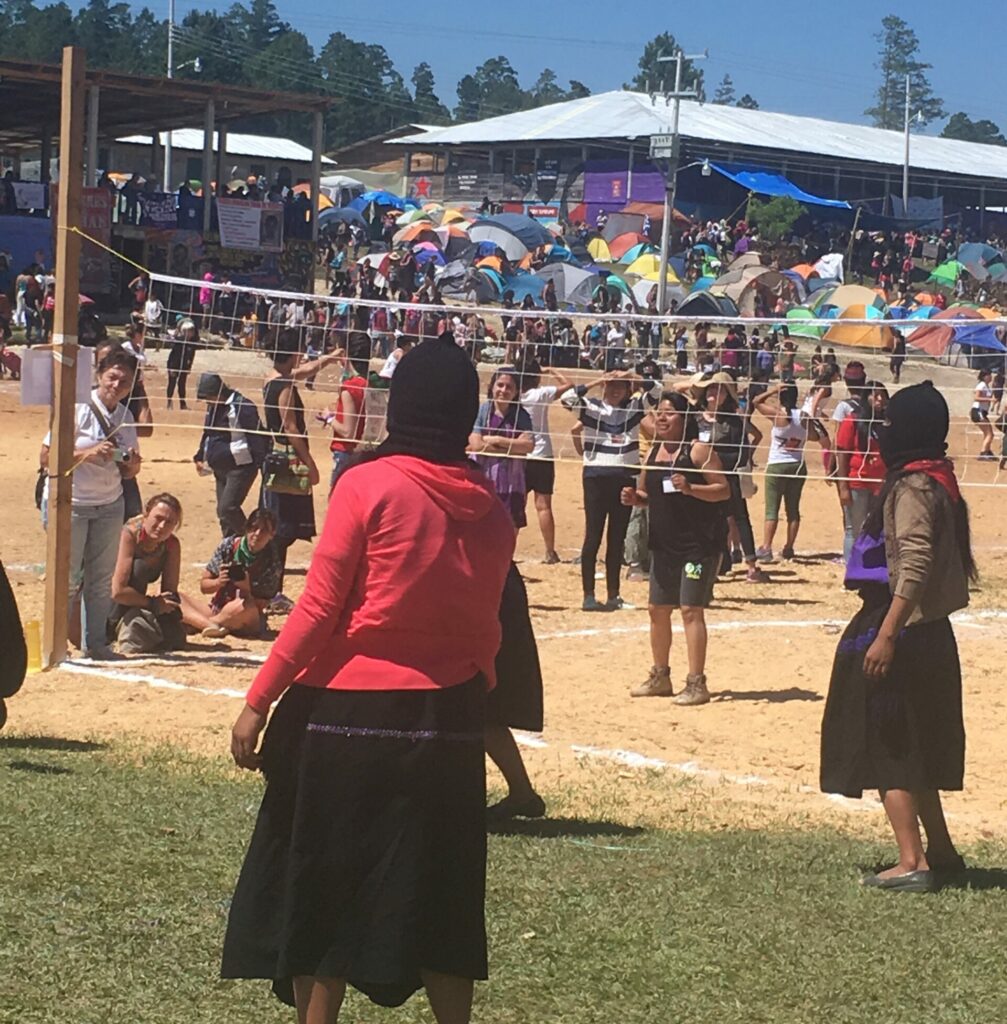by Raúl Zibechi
All the efforts of the ruling class are focused on eliminating or flattening the differences in the ways of life, in the daily practices of peoples, classes and individuals with respect to the dominant culture. For this purpose, entire regions are militarized, genocides and exterminations of populations have been taking place for five centuries.
The forced evangelization promoted by the conquerors aimed to destroy the political and cultural autonomy of the native peoples, which was rooted in communal ways of life and diverse spiritualities but unyielding to the dispossession of nascent capitalism. It was not a question of religions, or of true or false gods, but that peoples should not continue to live in their own way, according to their customs.
The destruction of the English peasants’ way of life was key to the implementation and expansion of capitalism, as Karl Polanyi analyzes in The Great Transformation. For this, violence from above was employed, stripping the peasants of their communal lands to turn them into vagabonds who would end up as workers imprisoned in the satanic mills, key pieces of the industrial revolution.
The offensive against taverns and other workers’ spaces at the beginning of the 20th century sought to destroy the spaces where workers spent their free time to relate to each other in ways different from those imposed by capitalist logic, turning them also into territories of cultural autonomy and organization of their resistance, as James Scott explains in Domination and the Arts of Resistance.
We can go back to the days of slavery (when quilombos and palenques were spaces of freedom and revolt), or land in our days (when soccer stadiums, which were spaces differentiated from the working class, become mechanisms of accumulation by dispossession and financial speculation), to verify that the history of struggles is also that of the destruction and reproduction of differences of class, skin color, gender and sexual diversity.
The war suffered today by the native and black peoples of the entire continent, the peasants, women and youth who resist, is aimed at stripping them of their way of life and making them dependent on capital. To force us into service. To turn us into wage slaves, who for less than a minimum wage dedicate our lives to lubricate capitalist accumulation.
The brutal offensive against the native peoples, from Chiapas and the Tarahumara mountains to the south of Chile, aims to expel them from their lands to turn them into commodities, certainly; but also because in their territories the peoples live in a heterogeneous way with respect to capitalism. In this case, territory and difference are intertwined, and are what allow the continuity of resistance.

In her latest work, Beyond the Periphery of the Skin, feminist Silvia Federici points out that during the Great Depression white working class women were sterilized when they were considered mentally weak, a category used by social workers and doctors to label women considered promiscuous and prone to having children out of wedlock. That is, for being different from the capitalist model of womanhood.
Difference, differences, are potentially anti-capitalist, but not in a mechanical way. In the same sense, we can assure that if there are no ways of life, no cultures and cosmovisions different from the hegemonic ones, any lasting resistance is impossible, any aspiration to change the world and overcome capitalism by building worlds-others, new and, above all, that are different. This point has been sufficiently emphasized by the Zapatista Army of National Liberation.
The second point is that difference does not fall from the sky, it is not a fact of reality, inherited or fixed. It must be cultivated, defended, and deepened, every day, every hour, in resistance against those who want to eliminate it. The system does this in various ways. One of them is violence and siege, like the one suffered by so many communities and support bases, as we were able to verify in Nuevo San Gregorio, in the territory of Caracol 10.
More subtly, capitalism tends to neutralize us with the temptation of consumption, which is a powerful force of attraction for young people. The impulse to migrate, to stop being who we are, is a way of suppressing the differences from below, as a complement to outright violence.
Because of this, the struggle takes place on multiple fronts: in the defense of the territory, in the affirmation of our own culture, in the effort t allow ourselves to be dragged into ways of life that they want to impose on us in order to disfigure us as peoples and as persons.
The way I see it, difference is the sacred fire that we must protect, care for, deepen and multiply every day of our lives.
This article was published in La Jornada on November 18th, 2022. https://www.jornada.com.mx/2022/11/18/opinion/020a1pol English translation by Schools for Chiapas.
